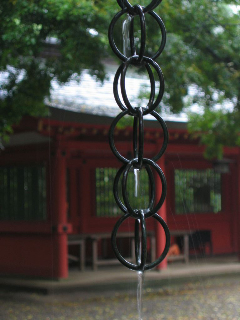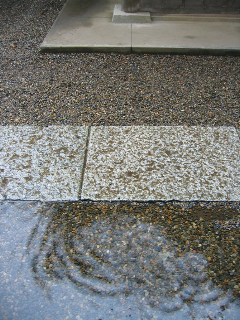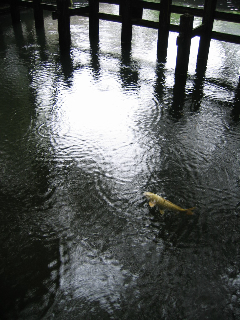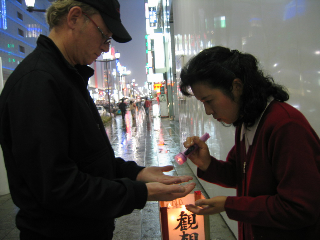come
back
to
me

Some things go out, go out — and they are gone, they never come
back. Like the little ships of paper in Bali, the papered lit and
floating sky cylinders in memorial in Thailand, the fired and
floating vik drums of Scandinavia, the floating pyres of India, set
adrift on the shore of the Ganges. They go out, they don’t come back.

I believe, in way, that they do, they always come back — what energy
goes out, there, out there, at some point, it returns.
And perhaps that return is a memory — the hint of a fragrance, just
that moment, the recollection of a certain light — that is from that
“going out” and now, coming back. Water goes, water returns, rippling
in, ripple out. Light glints, memory beckons the recalled visual,
warmth, sense. Things go, and things come — they swing out, they
return. You are re-minded.

In a way, thinking about it, I find myself drifting to the spiritual
space of Japan, where there seems to be a meditation, in an ongoing
way, about the concept of flow, fluency, life’s incessant movements,
whether you count them as circular or otherwise…

And in the sacred work and fluent geometry of these environments,
there’s more found there. It seems, to me, that many of these places
are about fluency — things flowing from one form to another, in a
manner quite unlike anything I’ve seen in other parts of the planet
— any of the gestures to fluency, the outward flow, that I noted
above…
Here, fluency is framed in the spirit of the space. Water comes, it
goes to one space, captured and observed in another, blessed in
another, praised in another. Loved, somewhere else. Loved, all ways.
There you go.
Come back to me.
—
. refluent \REH-floo-unt\ adjective
: flowing back“Refluent” was first documented in English during the 15th century,
and it can be traced back to the Latin verb “refluere,” meaning “to
flow back.” “Refluere,” in turn, was formed from the prefix “re-” and
the verb “fluere” (“to flow”). Other “fluere” descendants in English
include “confluent” (“flowing together”), “fluent” and “fluid” (both
of which share the earliest sense of “flowing easily”),
“circumfluent” (“flowing around”), and even “affluent” (which first
meant “flowing abundantly”). “Refluent” even has an antonym derived
from “fluere” — “effluent,” meaning “flowing out.”
Time flows, your hands tell it, the passage
